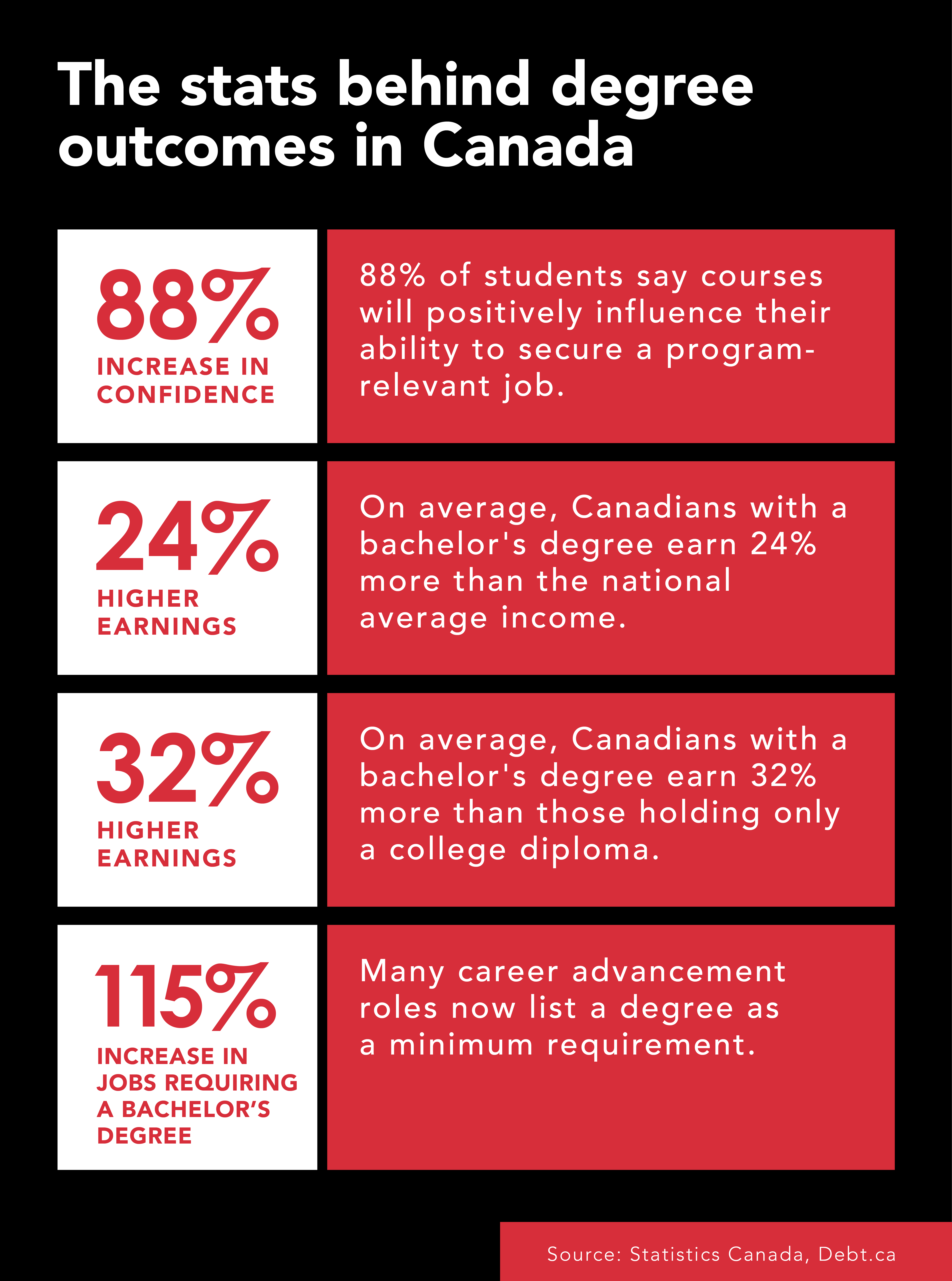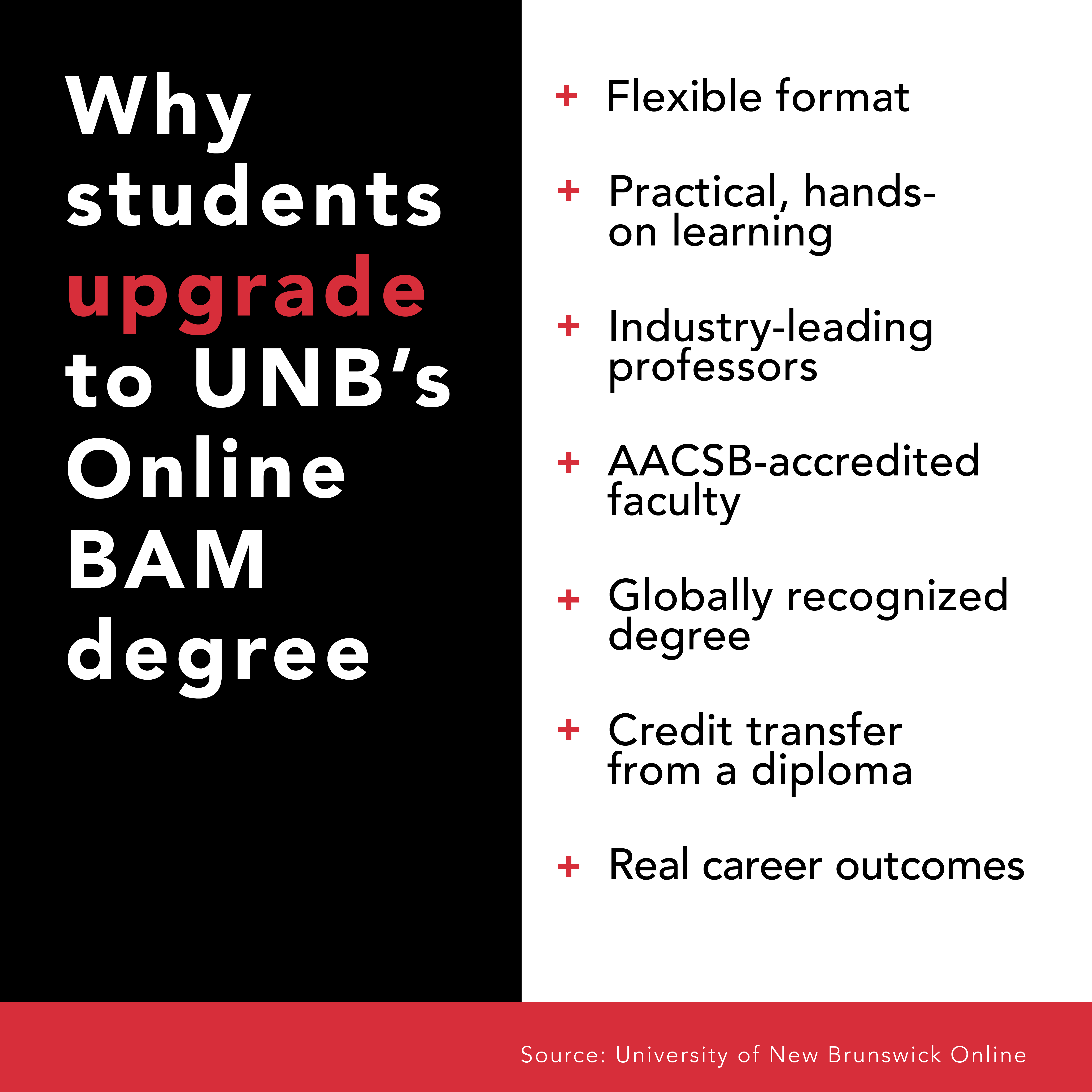In Canada, one of the most common questions high school diploma holders and early professionals ask themselves is: Should I enter into a college diploma or degree program?
It’s not just about classroom time. Choosing between a college diploma program and a bachelor’s degree often means deciding between speed and depth, affordability and versatility, short-term gain and long-term growth.
There’s no universal answer, but understanding the differences can help you make a choice that aligns with your desired career path.
Understanding the difference between a college diploma and a bachelor's degree program
College diploma programs provide specific skills and specialized training. These regular or advanced diploma programs typically take one to three years. They are designed to prepare domestic and international students for very specific jobs in fields like trades, healthcare, business administration or technology.
Think of them as career-launchers: you learn the practical skills to get hired quickly, often in a technical or front-line role.
A bachelor’s degree, on the other hand, usually spans three to four years and offers a broader, more comprehensive education. While degree programs include practical training, they also dive into foundational knowledge, theory, research, critical thinking and transferable skills.
They can also give you the necessary foundation to pursue graduate studies, such as a master's degree program.
Ultimately, the main difference comes down to depth and purpose. A college diploma program is about fast, focused training for a specific role. An undergraduate degree is about building a broader knowledge base that can support long-term growth and leadership development.
Comparing career outcomes: College diploma vs. bachelor's degree in Canada
When it comes to income and upward mobility, degrees tend to offer a significant edge
According to data from Statistics Canada, individuals with a bachelor's degree consistently report higher average incomes and lower unemployment rates than those with only a college diploma. In fact, bachelor’s degree holders in Canada earn an average of 32% more annually than those with a college diploma alone.
This is important when it comes to paying tuition costs or student loans, as it all factors into your ROI.
However, it’s not just about the money. Degree holders often qualify for more jobs in more industries.
Many positions in business, healthcare management, early childhood education, government and finance explicitly require a degree, even if the day-to-day work isn’t vastly different from diploma-level roles. Leadership and management positions, in particular, tend to favour or demand candidates with degrees.
That said, college diplomas tend to provide faster entry into the workforce. Diploma program graduates typically secure employment within months of graduating, especially in trades and applied industries, while 85% of Canadian business undergrads are employed within six months of graduation.

How your career goals should shape your education choice
There’s no one-size-fits-all answer, but the path that’s right for you should reflect where you see yourself going, not just where you are now.
If you're eager to get to work, focus on specialized knowledge, or are looking for a more budget-friendly post-secondary education, a college diploma may be the right start. It gives you the technical skills to confidently step into your first job and can be a solid foundation to build from later.
However, if you're aiming for management, consulting or more opportunities for long-term career progression, a bachelor’s degree offers more flexibility. You’ll gain not only subject-matter expertise but also the critical thinking and leadership tools that employers look for in senior roles.
Your education doesn’t have to stop at one credential either. Many professionals start with a college graduate diploma and upgrade to a bachelor's degree when the time is right.
Career advancement: How employers view diploma and degree credentials
Today’s employers are increasingly looking for degree-qualified candidates, especially for roles involving strategy, leadership or cross-functional decision-making.
Still, certain industries continue to value hands-on experience and college diplomas equally, particularly in skilled trades or applied tech sectors. If you’ve built a strong track record in a hands-on role, your college diploma can still serve you well.
That said, many professionals find their career growth stalls after a few years. You may reach a ceiling where advancement into supervisory or management roles is off-limits without further education.
That’s where the idea of laddering comes in. Some Canadian institutions now allow diploma graduates to transfer into degree programs with advanced standing, often shaving off significant time and cost.
This is an increasingly popular option for those who want to build on their existing postgraduate diploma (or associate degree, in some cases) without starting from scratch.
From college diploma to degree: Degree completion pathways
If you're ready to turn your college diploma into a degree, you’re not alone. Many educational institutions now offer structured pathways for diploma holders to transition into bachelor's programs.
These bridge or completion programs recognize your previous diploma courses and often allow you to complete your degree in less time. Instead of four full years, you might only need two, depending on your college background and the university's transfer credit policies.
One of the most flexible options available is the Online Bachelor of Applied Management (BAM) from UNB Online. Designed specifically for college diploma graduates, the BAM program allows you to transfer previous credits and complete your degree in an accelerated, 100% online format.
You’ll study management, strategy and applied business topics taught by faculty from an AACSB-accredited business school, an accreditation held by fewer than 6% of business schools worldwide.

Certificate programs vs. degree programs: Which is right for upskilling?
When thinking about career development, it’s important to differentiate between upskilling and foundational learning.
Certificate programs are excellent for short-term goals. They allow you to deepen your knowledge in a specific area, like digital marketing, project management or data analytics, without committing to a full degree.
Many are designed for professionals who already have a college diploma or degree and want to stay competitive in their industry or pivot into a slightly new direction.
That said, if you’re still early in your career or looking to significantly level up, a degree program offers more impact.
A bachelor's degree doesn't just add to your résumé; it expands your entire career horizon. This broader and well-rounded education pathway helps you adapt to shifting industries, new roles and leadership responsibilities as your goals evolve.
Ready to turn your college diploma into a degree? Explore UNB’s Online BAM program
UNB’s Online Bachelor of Applied Management (BAM) program is designed for working professionals and recent college graduates ready to advance their careers. It builds on the education you’ve already completed through your college diploma and applies it toward a respected Canadian bachelor’s degree.
You don’t need to leave your job or move across the country to earn your degree. You just need the right program, the proper support and the drive to take your next step.
Start your application today or request more information to see how the Online BAM can help you reach your goals.

